Testimonials
Chiara Cecconi is a PhD graduate at Utrecht University
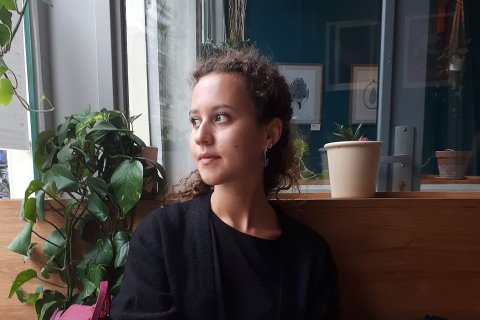
"Among many other things, during the research Master’s in Philosophy I have learnt how to become an independent researcher. The Research Master’s programme provided me with the theoretical means necessary to develop my own line of research. Next to this, the Master's also taught me a set of practical and technical skills that turned out to be fundamental in the process of applying for PhD positions: for instance, how to write a research proposal or how to design a research time plan."
Read more
"Thanks to a research internship I did towards the end of my first year, I got the chance to expand my area of interest to the field of ancient medicine. This experience led me to a thesis topic at the intersection of epistemology and ancient medicine which I then further developed into a PhD project on the innovative practice of human dissection in Hellenistic medicine.
Although I just started my PhD at Utrecht University, I truly appreciate how diverse my job can be. For instance, besides working on my own project, I organise the History of Philosophy Colloquium, where leading scholars, from Utrecht and from abroad, present their current research. Moreover, since my project is part of ‘Anchoring Innovation’, the Gravitation Grant research agenda of OIKOS, I also have the chance to collaborate with other young researchers in classical studies."
Samuel Mulkens is a Development Engineer at ABN AMRO
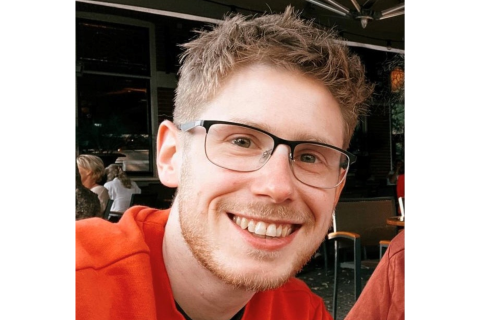
"When I finished my research Master’s in Philosophy, I wasn’t quite sure what my next step would be. I didn’t want to do a PhD, but also wasn’t sure what I actually did want to do. I initially found a job as a Microsoft Consultant, but soon realised I preferred the technical aspects over the consultancy part. I then chose to enroll in a coding bootcamp, after which I got hired as a Development Engineer at ABN AMRO."
Read more
"My team is called Document and Data Capture, and we maintain an application that can OCR (recognise text), classify and extract data from documents and text. We use this to automate new inflows of data, prevent data quality issues and on request we can assess the data quality of documents stored within the bank.
The Philosophy research Master’s Programme didn’t teach me how to code, but it did give me the skills that underly coding: critical analysis, abstract and logical thinking, attention to detail (and being able to keep an overview at the same time), and the ability to clearly communicate what I am doing and why I am doing it. I chose the RMA programme because I loved to deep dive into and analyse arguments/texts, and I enjoyed the academic environment in Utrecht (where I also did my Bachelor’s in Philosophy).
For those who are also unsure of what they want to do after their Master’s: find what you like about studying philosophy and see if you can find sectors or jobs that use the same skills. An internship can be very useful for this. Don’t be afraid to try things out, it might surprise you where you can end up with a philosophy background!"
Robin de Bruijn works for NS (Dutch Railways)
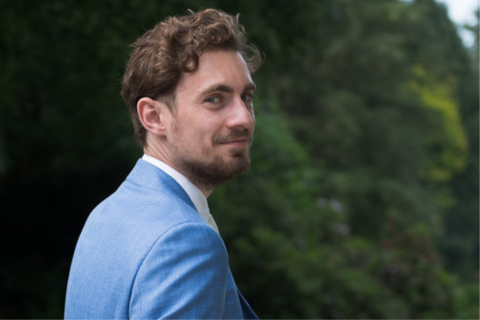
"Since my graduation I have been working at NS (Dutch Railways), where I started as a management trainee. Currently I am manager of our local planning departments. It might surprise you that a philosophy alumnus has ended up as a manager in public transport, but I am proud to say that I profit from having studied philosophy daily, perhaps not directly due to the knowledge I gained or the skills I trained, but certainly due to the excellent workout it provided for my brain and the inexhaustible source of inspiration it still is to me."
Read more
"What I liked most about studying philosophy in Utrecht was the possibility to explore a great variety of subjects. As I progressed through the programme, all the single elements from the compulsory courses, providing a strong foundation, and the electives, allowing for personalisation, started to find ways to come together. Ultimately, I was able to make a connection between debates on neo-Aristotelian metaphysics and discussions on disability ethics in my thesis.
If you want to pursue a career outside academia, like me, my advice would be to benefit from the many extracurricular opportunities. I have gained a lot by having participated in seminars, conferences and a winter school, and by having been a teaching assistant, a student member of the curriculum committee and a coordinator for the honours programme. I would also advise you to get some work experience. Having had a part-time job as a team leader at a supermarket during my studies turned out to be a strong point in applying for jobs and was a great way to make a lot of rookie mistakes before getting my first fulltime job."
Thom Hamer is a PhD graduate at Cardiff University
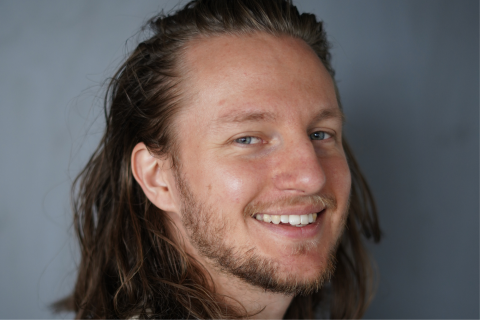
"I had not entirely set my mind on a career in academic philosophy before my entry into the RMA. Coming from a liberal arts background, combined with a predilection for artistic creation, it is not difficult to see why I was hesitant to focus on a highly specialized area of expertise for four years. Still, the programme at Utrecht University eventually inspired me to go for it."
Read more
"This progression toward research had several reasons. For example, I began cultivating specific skills during the programme like rigorous argumentation, attentive close-reading and historical contextualization. Most important, however, was the room for unfolding my own idiosyncratic approach.
Influential in this regard was the diversity of orientations that came together in the body of students, ranging from Marxism to libertarianism, from epistemological realism to error theory. This heterogeneity was further reiterated by the fortnightly colloquia, in which all kinds of researchers presented their work-in-progress. Such a broad range of perspectives, and the freedom associated with it, proved to be an enrichment of my philosophical outlook.
Because of the lack of existential philosophy within the curriculum, I had to take matters into my own hands in order to arrange a course on existentialism. Luckily, the department exhibited a welcoming attitude toward such initiatives. During the course I developed an intellectual infatuation with the comically absurd. This eventually led me to conjure up a 32,500+ words thesis on a humoristic disposition toward existential absurdity. The thoughts set forth in the final chapter, revolving around metamodernism and post-irony, now constitute the backbone of my doctoral research at Cardiff University, on post-ironic existentialism.
To be honest, I didn't know where to start looking for possible openings for a research proposal as specific as my own. Academic job boards offered no solace. Instead, I began compiling a list of researchers working on either humor or existentialism. I dug into the bibliography within my thesis and into PhilPeople. The latter approach eventually brought me in touch with professor Jonathan Webber and professor Genia Schönbaumsfeld, now my supervisory team, in which extensive knowledge of both existentialism and irony are represented. Thanks to their motivational as well as substantive support, I managed to secure full funding with the SWW-DTP2 scholarship."
Mario Josue Cunningham Matamoros is a PhD graduate at KU Leuven
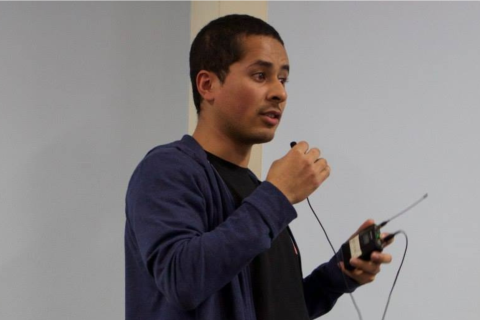
"As someone coming from Latin America, my undergraduate training in Philosophy was mainly based on the History of Philosophy. Due to my interest in Political Theory and my desire to pursue postgraduate studies, I decided to look for MA programme's that allow me to complement my previous education and improve my chances of getting a PhD position in a top university. Hence, I chose Utrecht's Philosophy research Master (RMA) because it offered first-class contemporary political philosophy training."
Read more
"The Utrecht's Philosophy RMA is a demanding and intense programme where students develop the necessary research skills to pursue a PhD. Besides the compulsory courses, the programme provides students with enough leeway to focus on their particular philosophical interests via tutorials and internships. For example, during my time in the programme I was able to take part as an intern in a research project. This internship gave me first-hand experience on what a research project looks like from the inside.
Two months after finishing the RMA at Utrecht, I got a PhD Fellowship at the Justice and Migration project at KU Leuven. After more than a year working as a PhD Fellow, I can confidently say that my experience at Utrecht prepared me to work as a researcher."

